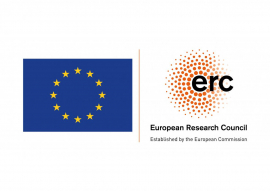Project summary
The application's unifying theme is coopetition: it proposes to revisit the economics of cooperation and competition in industry vertical chains and develop new tools for industrial organization (IO). Modern IO theory however treats firms as unitary, profit-maximizing entities, characterized by a well-identified perimeter of activities, and clearly identified either as competitors or as complementors. Yet in practice:
- Industry structures are increasingly complex. Firms distribute for example their activities among partners across the globe, and as a result, some partners become competitors and vice versa. And industries such as the automotive and aircraft industries, for example, have moved to multiple, interlocking relationships.
- Firms that are competing for customers or suppliers are also cooperating in other dimensions, e.g., by setting-up common platforms or patent pools, or by adopting joint common rules within which to compete.
- Supplier -customer relations often involve transaction costs other than pure search costs: adoption costs, learning or shopping costs, or expensive strategies to protect sensitive information.
Such transaction costs drastically impact the choice of partners and/or shopping patterns, which in turn affects firms' business strategies and the working of competition. Understanding the interplay between competition and cooperation is key to designing business strategies, but it has also implications for industry oversight: When should cooperation among competitors be limited or encouraged? Over which dimensions?
This application proposes to cover three topics:
1. Allocation of tasks and the choice of partners.
2. Multilateral interlocking relations.
3. Cooperation and competition.
4. Transaction costs, buying patterns and business strategies
While the project falls primarily in the field of applied theory, some of the developments require new tools and interaction with game theorists. Furthermore, empirical validation will require the use of structural econometric modelling (based in particular on consumer panel data) and laboratory experiments. The project has also an interdisciplinary flavour and will benefit from work of and interactions with legal scholars and marketing experts.

